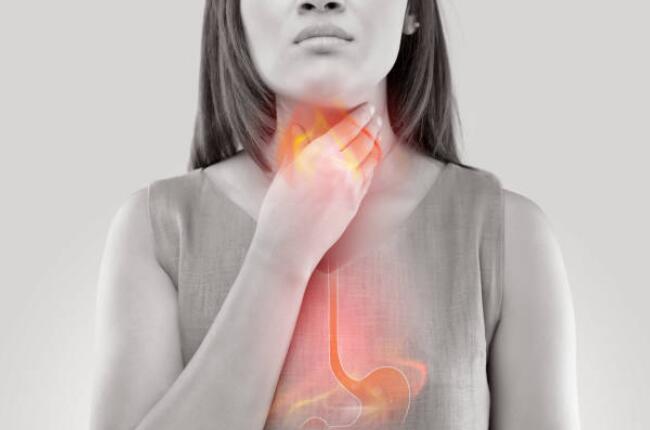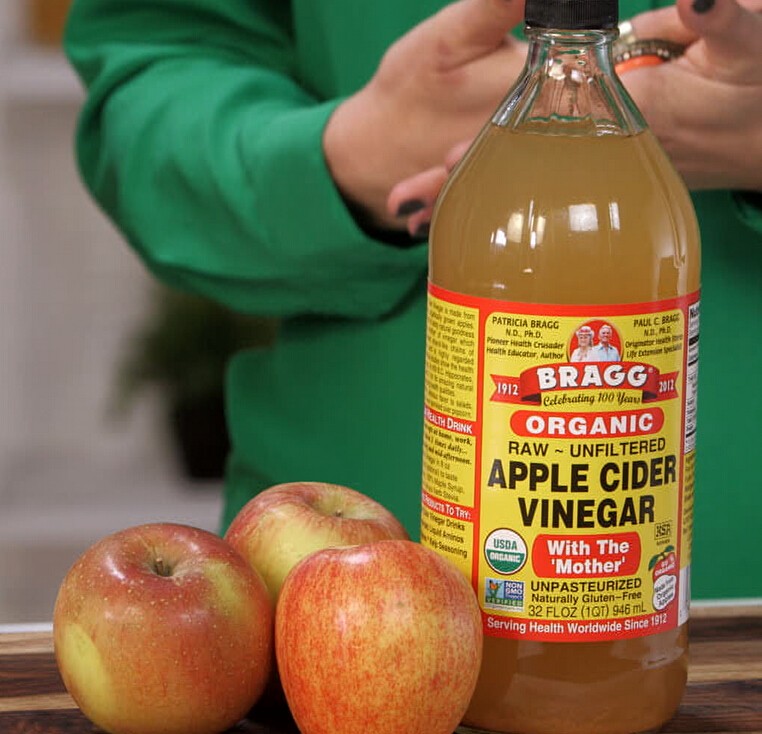Are you tired of dealing with the discomfort and pain caused by GERD (Gastroesophageal Reflux Disease)? If so, you’re not alone. Millions of people around the world suffer from this condition. Acid reflux, also known as gastroesophageal reflux disease (GERD), is characterized by the backward flow of stomach acid into the esophagus. This can lead to discomfort, heartburn, and various other symptoms. Managing GERD often involves changing your diet to reduce the occurrence and severity of acid reflux episodes. This article will explore the 18 best GERD diet strategies to help alleviate symptoms and promote better digestive health.

Foods That May Cause Heartburn(Acid Reflux)
If you have GERD, some specific foods can trigger heartburn. These foods cause the esophageal sphincter to loosen and hinder the digestive process, allowing the food to stay in the stomach longer. Here are some foods that may cause heartburn.
- Spicy Foods: Hot peppers, chili powder, and other spicy ingredients can irritate the esophagus and trigger heartburn.
- Citrus Fruits: Oranges, lemons, grapefruits, and other citrus fruits are highly acidic, which can lead to acid reflux.
- Tomatoes: Tomato-based products such as tomato sauce, ketchup, and even raw tomatoes are known to cause heartburn due to their high acidity.
- Fried and Fatty Foods: Greasy and fatty foods like french fries, fried chicken, and high-fat meats can relax the lower esophageal sphincter (LES) and delay stomach emptying, increasing the risk of acid reflux.
- Chocolate: Chocolate contains caffeine and a compound called theobromine, which can relax the LES and promote stomach acid reflux.
- Carbonated Drinks: Carbonated beverages like soda and carbonated water can cause bloating and increase pressure on the stomach, leading to heartburn.
- Coffee and Tea: Caffeinated beverages, including coffee and tea, can stimulate acid production and relax the LES, making heartburn more likely.
- Alcohol: Alcoholic beverages can relax the LES and increase stomach acid production, contributing to heartburn and acid reflux symptoms.
- Peppermint and Spearmint: Mint products like peppermint and spearmint candies or teas can relax the LES and worsen heartburn symptoms.
- Onions and Garlic: These pungent vegetables are known to relax the LES and may cause heartburn in some individuals.

11 Best GERD Diet Strategies for Acid Reflux
1. Eat Smaller, More Frequent Meals
One effective strategy to reduce acid reflux is to consume smaller meals throughout the day rather than three large meals. Eating large meals can pressure the lower esophageal sphincter (LES), the muscle that prevents stomach acid from flowing back into the esophagus. You can minimize the risk of acid reflux episodes by opting for smaller, more frequent meals.
2. Avoid Trigger Foods
Certain foods are known to trigger acid reflux symptoms. Identifying these trigger foods and avoiding them as much as possible is important. Common trigger foods include spicy, citrus fruits, tomatoes, chocolate, caffeine, and fatty or fried foods. By eliminating or reducing the consumption of these foods, you can significantly reduce the occurrence of acid reflux.
3. Incorporate High-Fiber Foods
Including high-fiber foods in your diet can be beneficial for managing GERD. Fiber helps regulate digestion and promotes healthy bowel movements. Fiber-rich foods include fruits, vegetables, whole grains, legumes, and nuts. Adding these foods can help prevent constipation and maintain optimal digestive health.
4. Stay Hydrated
Adequate hydration is essential for overall health, including the management of GERD. Drinking enough water helps dilute stomach acid and promotes proper digestion.
Drink at least eight glasses of water daily and stay hydrated throughout the day. However, it’s important to note that excessive consumption of liquids during meals may contribute to acid reflux, so it’s best to drink water between meals.
5. Chew Thoroughly
Proper chewing of food is an often overlooked aspect of digestion. Taking the time to chew your food thoroughly allows for easier digestion and reduces the strain on your digestive system.
Chewing your food properly breaks it down into smaller particles, making it easier for your stomach to process. This can help minimize the occurrence of acid reflux symptoms.
6. Limit Alcohol Consumption
Alcohol consumption is a known trigger for acid reflux. It relaxes the lower esophageal sphincter, making it easier for stomach acid to flow back into the esophagus.
If you experience frequent acid reflux episodes, it’s best to limit or avoid alcohol altogether. If you drink, do so in moderation and consider choosing low-acid beverages like white wine instead of red wine.
7. Elevate the Head of Your Bed
Elevating the head of your bed by around six inches can help prevent acid reflux during sleep. Gravity plays a role in keeping stomach acid down, and elevating your upper body can aid in this process.
You can achieve this by placing blocks or risers under the legs at the head of your bed. This simple adjustment can make a significant difference in reducing nighttime acid reflux symptoms.
8. Practice Stress Management
Stress has been linked to various health issues, including digestive problems like GERD. It can increase stomach acid production and disrupt digestion. Stress management techniques such as deep breathing exercises, meditation, yoga, or regular exercise can help alleviate stress and reduce the likelihood of acid reflux episodes.
9. Opt for Lean Proteins
High-fat meats and dairy products can trigger acid reflux symptoms. Instead, choose lean protein sources such as skinless poultry, fish, tofu, and legumes. These options are lower in fat and are less likely to cause acid reflux. Additionally, they provide essential nutrients while promoting better digestion and overall health.
10. Avoid Eating Before Bed
Consuming a heavy meal or snacks close to bedtime can worsen acid reflux symptoms. It’s recommended to avoid eating at least two to three hours before lying down.
This allows your stomach to digest the food properly before lying down, reducing the risk of acid reflux. If you’re hungry before bed, opt for a light, GERD-friendly snack like a small portion of fruit or a handful of almonds.
11. Maintain a Healthy Weight
Excess weight can pressure your abdomen, increasing the risk of acid reflux. Maintaining a healthy weight through regular exercise and a balanced diet can significantly reduce the occurrence of acid reflux episodes.
Incorporate physical activity into your daily routine and focus on consuming nutrient-dense foods to support a healthy weight and optimal digestion.

7 Best Home Remedies for Acid Reflux
1. Apple Cider Vinegar
Apple cider vinegar (ACV) has gained popularity for its numerous health benefits, including its ability to alleviate acid reflux symptoms. It works by balancing the pH levels in the stomach and promoting proper digestion.
To use ACV, dilute one tablespoon of raw, unfiltered ACV in a glass of water and consume it before meals. This can help prevent acid reflux by stimulating the production of stomach acid and improving digestion.
2. Aloe Vera Juice
Aloe vera juice is known for its soothing properties and can relieve acid reflux symptoms. It helps reduce inflammation in the esophagus and soothes the irritation caused by stomach acid. Drink a small amount of aloe vera juice before meals to calm the digestive system and minimize acid reflux episodes.
3. Ginger
Ginger has been used for centuries to treat various digestive disorders, including acid reflux. Its anti-inflammatory properties can help reduce the inflammation in the esophagus and alleviate discomfort.
You can consume ginger in various forms, such as ginger tea or freshly grated ginger added to meals. Ginger supplements are also available, but consult your healthcare provider before using them.
4. Slippery Elm
Slippery elm is a herb known for its mucilage content, which forms a protective layer along the esophagus, reducing the impact of stomach acid. It can help relieve heartburn, sore throat, and other acid reflux symptoms.
You can find slippery elm in lozenges, capsules, or powdered bark. Follow the instructions on the product label for the appropriate dosage.
5. Baking Soda
Baking soda is a readily available ingredient in most kitchens and can be used as a quick remedy for acid reflux. Its alkaline nature helps neutralize the excess stomach acid, providing immediate relief.
Mix half a teaspoon of baking soda in a glass of water and drink it to alleviate the burning sensation. However, excessive use of baking soda can disrupt the natural pH balance, so use it sparingly.
6. Chamomile Tea
Chamomile tea is well-known for its calming properties and can help soothe the digestive system. It has anti-inflammatory effects and can reduce the irritation caused by acid reflux. Brew a cup of chamomile tea before bedtime to promote better sleep and alleviate acid reflux symptoms.
7. Licorice Root
Licorice root has been used for centuries in traditional medicine to treat gastrointestinal issues, including acid reflux. It contains compounds that help reduce inflammation and protect the lining of the esophagus.
You can consume licorice root tea or take deglycyrrhizinated licorice (DGL) supplements, which are safer and do not have the side effects associated with regular licorice.
Frequently Asked Questions (FAQs)
1. Can diet alone cure GERD?
While diet significantly manages GERD, it may not be a standalone cure. Adopting a GERD-friendly diet can help alleviate symptoms and promote better digestive health, but it’s important to consult with a healthcare professional for a comprehensive treatment plan.
2. Are there any specific foods that can help reduce acid reflux?
Certain foods are anti-inflammatory and can help reduce acid reflux symptoms. Examples include ginger, oatmeal, non-citrus fruits, and vegetables. However, it’s important to note that individual responses to these foods may vary.
3. Is it okay to drink coffee with GERD?
Coffee is a known trigger for acid reflux due to its high acidity and caffeine content. It’s best to avoid or limit coffee consumption if you have GERD. If you still want to enjoy a cup of coffee, consider opting for low-acid varieties or decaffeinated options.
4. Can stress worsen GERD symptoms?
Yes, stress can worsen GERD symptoms. Stress can increase stomach acid production and disrupt digestion, increasing the risk of acid reflux episodes. Managing stress through relaxation techniques and lifestyle modifications can help reduce GERD symptoms.
5. Should I avoid all fats if I have GERD?
While high-fat foods can trigger acid reflux symptoms, not all fats are harmful. Opt for healthier fats like avocados, olive oil, and nuts. These fats are less likely to cause acid reflux and provide essential nutrients for overall health.
6. Can I still enjoy spicy foods with GERD?
Spicy foods are known triggers for acid reflux, and avoiding or limiting their consumption is generally recommended if you have GERD. However, individual tolerances may vary. If you enjoy spicy foods, it’s best to consume them in moderation and pay attention to your body’s response.






